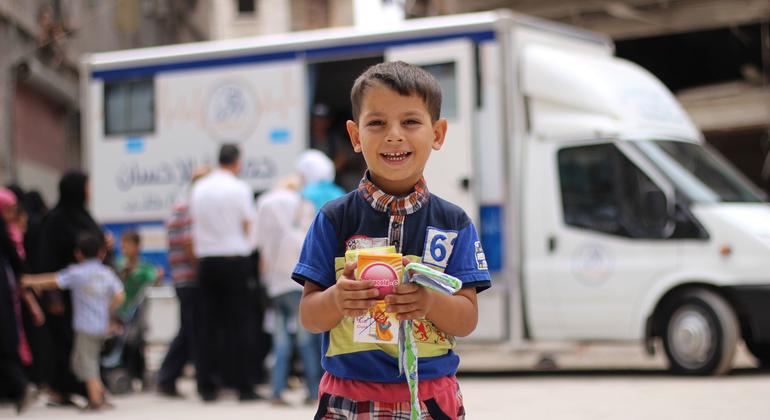Without health, the world is badly hobbled in its race to realize the 2030 Agenda for Sustainable Development and its 17 Goals; the recently opened 78th session of the UN General Assembly aims to change that.
On the docket is a fresh global strategy to prevent, prepare, and respond to future pandemics on the heels of hard lessons learned from the COVID-19 outbreak in 2020. International agreements are also in the pipeline to tackle the global tuberculosis epidemic and to promote universal health coverage for all.
“We live in a world of many competing priorities, but we need to keep the attention of world leaders on health as the foundation of sustainable development,” said World Health Organization (WHO) Director-General Tedros Adhanom Ghebreyesus.
Here are the top five things to know about the UNGA 78’s ministerial-level health meetings:
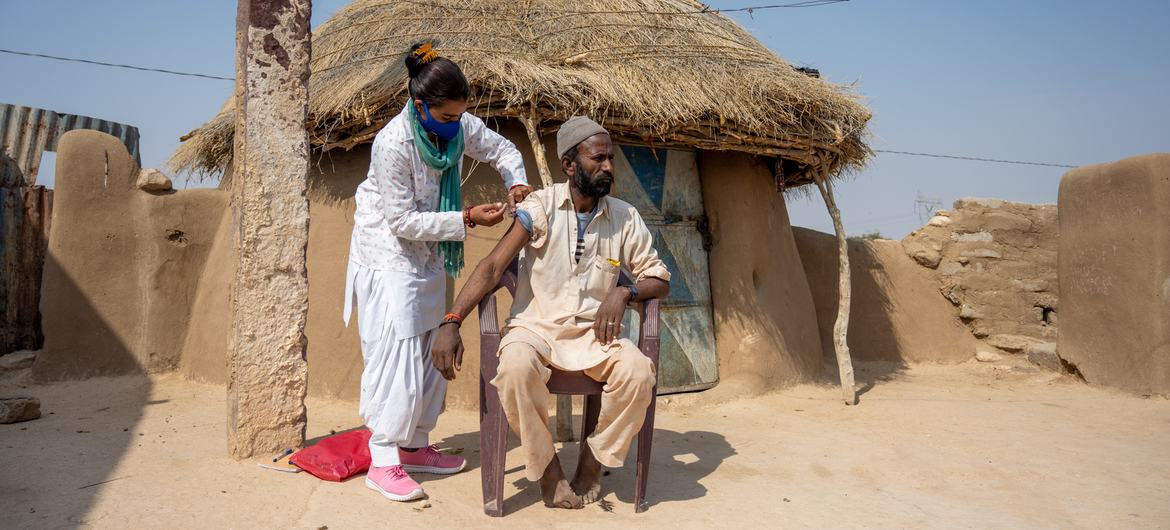
A man receives his second dose of the COVID-19 vaccine during a door-to-door vaccine campaign in Rajasthan, India. (file)
1. New pandemic accord goes beyond COVID-19
Long before the COVID-19 pandemic shut down the world, the UN health agency was forging innovative ways to handle global outbreaks of deadly diseases and viruses. Only months before the global coronavirus lockdown in March 2020, WHO was discussing an international strategy. Now a new pandemic accord is before the world at UNGA 78.
As nations across the planet painfully learned, no country was immune to the deadly, fast-spreading virus that pushed healthcare systems to their limits, killed more than 6 million people, and set back development gains by decades.
Looking to the future, the plan is to make the world safer by guarding global disease outbreaks and cementing efficient response plans for current and future generations.
Nations have been negotiating a draft declaration that world leaders are expected to adopt at a high-level meeting on 22 September.
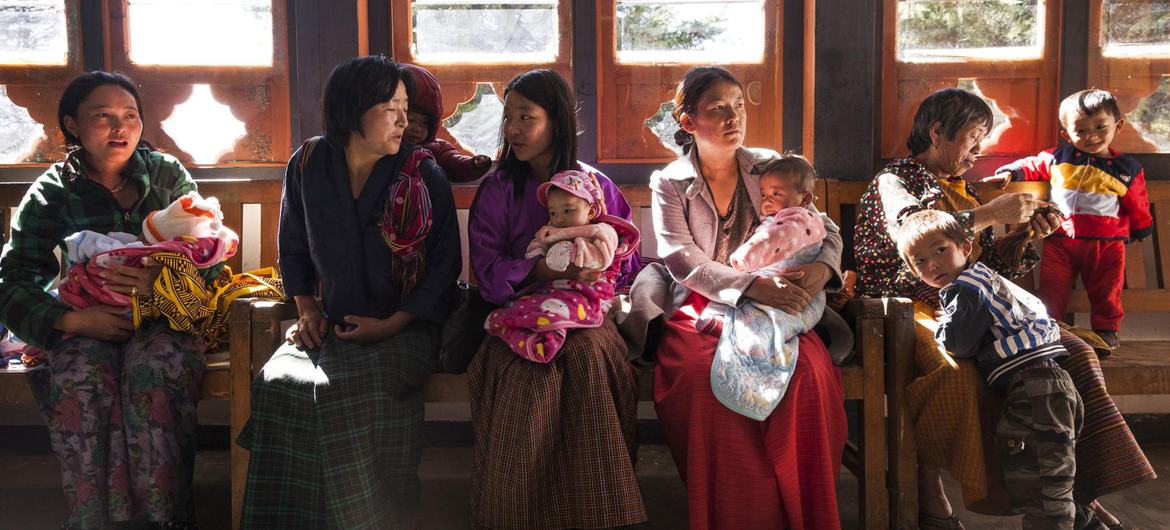
Mothers and their babies wait to see UN-supported health care workers in Bhutan.
2. Health care for all
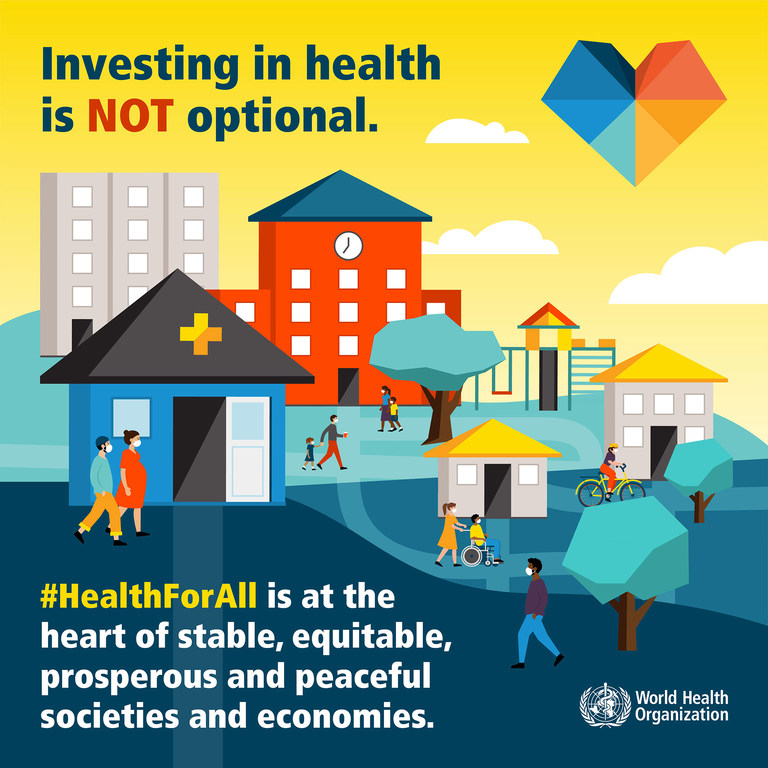
Invest in health.
Many countries with the most advanced medical care systems were caught by surprise by COVID-19 because of their historic lack of investment in primary health care, according to the WHO chief.
On 21 September, ministers will gather at UN Headquarters for a high-level meeting on universal health coverage.
Weaving through a range of Sustainable Development Goals (SDGs), the WHO chief said providing universal health coverage makes sense.
He said strong primary health care (Goal 3) requires long-term investments in health and care workers, and specifically in decent working conditions (Goal 8). Moreover, investing in education (Goal 4) must be matched to jobs and careers, with the right salaries and incentives, he added.
Given that two-thirds of the global health and care workforce are women, he emphasized that investments in the health and care workforce can also advance gender equality (Goal 5).
The draft political declaration expected to be adopted on Thursday aims towards one main result: a healthier population.
3. SDG 3 Health Clinic
While diplomats debate global challenges at UN Headquarters, the UN health agency, WHO, has set up the SDG 3 Health Clinic, no appointments needed.
The Global Scrubs Choir, made up of frontline staff from the Royal Melbourne Hospital, is performing live at the WHO-run SDG 3 Health Clinic during the high-level week at the UN General Assembly’s 78th session.
Visitors can have a seat on a friendship bench and tell clinic staff why mental health is important to them. Health is, after all, not just the absence of disease or infirmity but a state of complete physical, mental, and social wellbeing.
Fancy some music therapy? The Global Scrubs Choir, comprising frontline staff from the Royal Melbourne Hospital in Australia, will be performing daily from 8 am until 8:45 am.
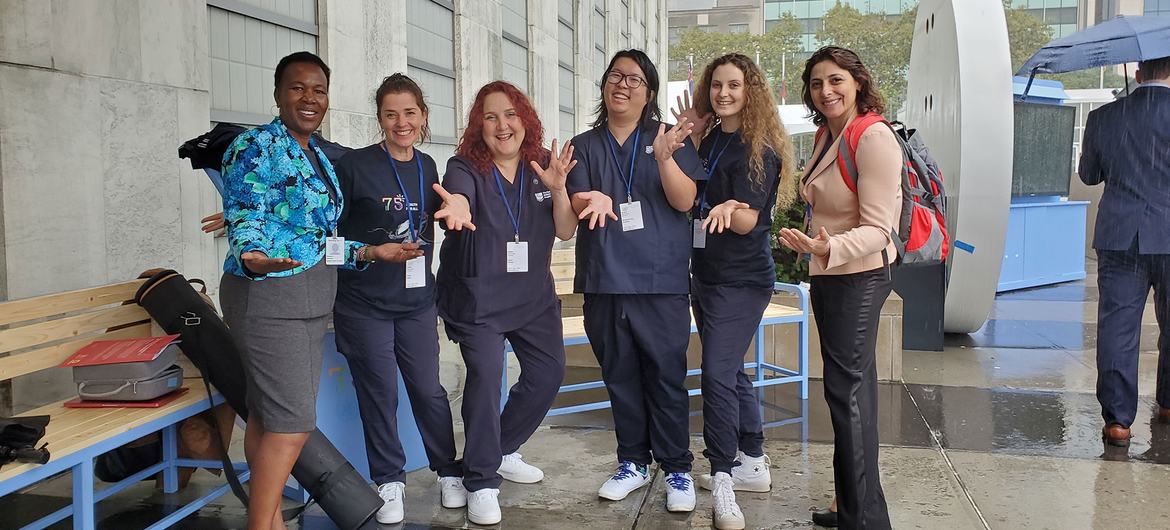
The Global Scrubs Choir from Australia’s Royal Melbourne Hospital are performing at the SDG 3 Health Clinic at UN Headquarters.
4. Pushing 30-year-old tuberculosis epidemic into history
A high-level dialogue on 22 September aims to intensify global efforts to finally end a decades-long tuberculosis (TB) epidemic, which remains a significant cause of death worldwide.
The preventable and curable disease disproportionately affects developing countries, and one quarter of the world’s population is infected with the bacterium that causes the illness. In 2021, an estimated 10.6 million people fell ill with TB, and approximately 1.6 million people died from it in 2021.
Thirty years after WHO declared it a global emergency, the epidemic still is a critical challenge in all regions and affects every country of the world. Millions of people ill with TB are missing out on quality care each year, including on access to affordable diagnostic tests and treatment, especially in developing countries, according to the UN health agency.
Adopting the draft political declaration means nations would commit to a set of actions to swiftly change that.
Find the programme and list of speakers expected at the high-level meeting here.
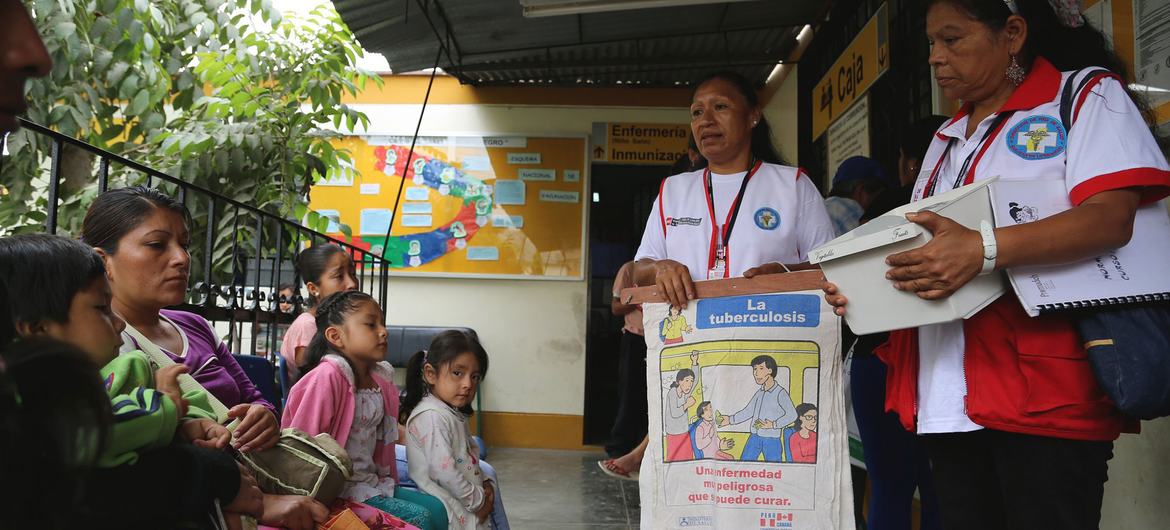
Patients at a health centre in Peru are given advice about how to avoid catching TB.
5. Global Action Plan
WHO established the Global Action Plan for Healthy Lives and Wellbeing for All, also known as “SDG 3 GAP”, in 2019, bringing together 13 multilateral health, development, and humanitarian agencies around the world. Despite rising challenges during the COVID-19 pandemic, they made hard-won inroads, taking their success stories to the SDG Summit in a bid to help.
The goal is simple: to help countries speed progress on health-related SDGs. Together, they take joint action and provide more coordinated and aligned support to country-owned and led national plans and strategies.
“In the last few years, we have been experiencing something of a perfect storm: COVID-19, climate change, conflicts and other crises are threatening the progress achieved over the past 20 years,” said Peter Sands, Executive Director of the Global Fund to Fight AIDS, Tuberculosis and Malaria, which is part of the global network.
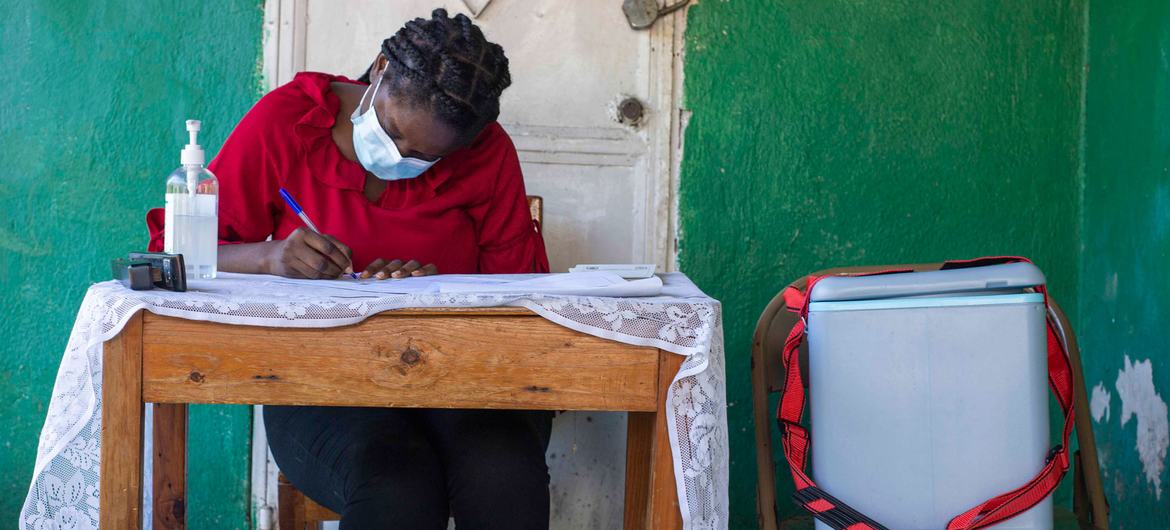
The UN has been supporting a cholera vaccine programme in some of the most vulnerable communities in Haiti.
“We can sustain and even accelerate progress if we work together to tackle the most acute health challenges and build stronger and more resilient health systems, but it is vital that as we do so we confront the deep and pervasive health inequities between and within countries.”
Check out the Global Action Plan’s 2023 progress report here.

